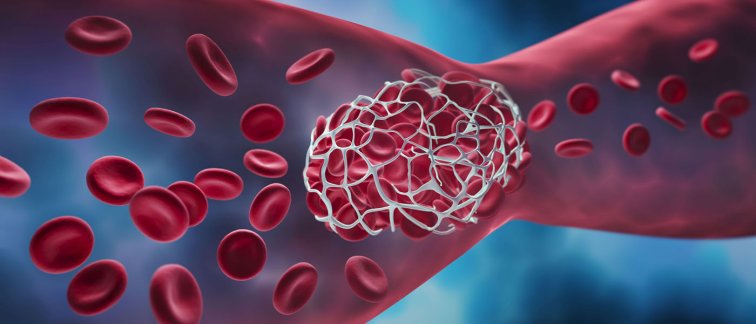
research data, we know that administering blood thinners during catheter treatment should be avoided as much as possible.
Antithrombotic drugs
In the MR CLEAN-MED trial, a multicentered team led by the Erasmus MC investigated the effectiveness and safety of using antithrombotic drugs acetylsalicylic acid (aspirin) and heparin during the catheter treatment of stroke. In this treatment, the blood clot is removed from the brain with a catheter via the femoral artery in the groin. Additional antithrombotic therapy should ensure that the smaller blood vessels also open up. Until now, however, it was unknown whether the potential benefits of these drugs outweighed the increased risk of an intracerebral hemorrhage.
Severe cerebral hemorrhage
This now appears not to be the case. Patients who were given intravenous acetylsalicylic acid or heparin had about twice the incidence of serious intracerebral hemorrhage compared to patients who did not receive antithrombotic drugs. Intracerebral hemorrhage occurred in 14 percent of patients in the acetylsalicylic acid group and 13 percent in the heparin group, versus 7 percent of patients in the control group. In addition, there was no evidence that patients recovered better when given antithrombotic drugs. In total, the researchers included 628 patients in the study before it was terminated early because of the findings.
Adapt guidelines
The researchers expect their results to change worldwide guidelines for administration of antithrombotic drugs during catheter treatment of stroke. ‘This could prevent a large number of serious intracerebral hemorrhages worldwide,' says neurologist-in-training at Erasmus MC and first author Wouter van der Steen.
These 15 Dutch hospitals participated in the MR CLEAN MED trial: Albert Schweitzer ziekenhuis, Amphia Ziekenhuis, Amsterdam UMC, Catharina ziekenhuis, Erasmus MC, Haaglanden Medisch Centrum, HagaZiekenhuis, Isala Klinieken, Maastricht Universitair Medisch Centrum, Sint Antonius ziekenhuis, Elisabeth TweeSteden ziekenhuis, Universitair Medisch Centrum Groningen, Radboudumc, Universitair Medisch Centrum Utrecht, Ziekenhuis Rijnstate.
The MR CLEAN MED trial was led by Prof. Diederik Dippel and Prof. Aad van der Lugt of Erasmus MC. This study received unrestricted funding through the CONTRAST consortium, Dutch Heart Foundation, and Brain Foundation.
Read the publication in The Lancet: Safety and efficacy of aspirin, unfractionated heparin, both, or neither during endovascular stroke treatment (MR CLEAN-MED)
Source: Erasmus MC

